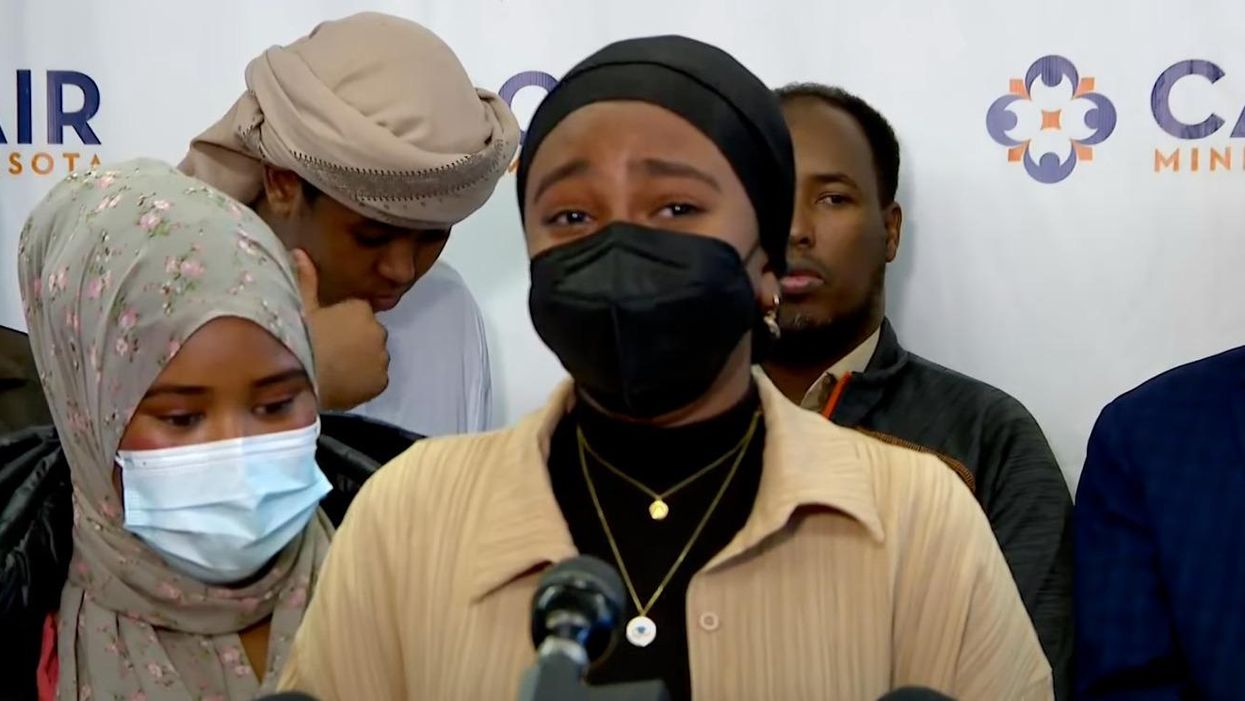False Charges Of Islamophobia Expose 'Woke' Intolerance In Academia
Chances are, your humble, obedient servant here will never be invited to teach at Hamline University, a Methodist school in St. Paul, Minnesota. For one thing, I’m almost old enough to be president of the United States — that is, well beyond my professorial sell-by date.
For another, administrative jellyfish who cave to self-dramatizing undergraduates demanding to dictate on religious grounds what can and cannot be taught in the institution’s classrooms fill me with disdain. I’d be almost certain to end up embroiled in some soul-deadening, comic opera dispute like the one roiling Hamline’s campus over the past several months.
Been there, done that. Never again.
The Hamline controversy began when Erika Lopez Prater, an adjunct lecturer, showed her art history class a slide of a 14th-century Persian painting depicting the angel Gabriel delivering a revelation to the Prophet Muhammad. The image derives from an early Islamic history of the world, A Compendium of Chronicles, written by Rashid al-Din (1247-1318).
Conceived and executed as a devotional work, the image is regarded by art historians as “a masterpiece of Persian manuscript painting,” in the words of Christiane Gruber, a professor of Islamic art at the University of Michigan. She added that studying Islamic art without the Compendium of Chronicles image “would be like not teaching Michelangelo’s David.”
Aware that many contemporary understandings of Islam regard visual depictions of the prophet as heretical (lest the faithful confuse Muhammad with God and fall into idolatry), the Hamline instructor handed out a course syllabus cautioning students that paintings depicting Jesus, Buddha and Muhammad would be studied.
Before showing the Persian painting, she gave her class a verbal caution, saying that anybody reluctant to view it was encouraged to leave the classroom. Nobody did. After class, however, Aram Wedatalla, a senior business major and president of the university’s Muslim Student Association, stayed to complain. In subsequent public forums, according to The New York Times, the student described herself as having been “blindsided” by the disturbing image.
“I’m like, ‘This can’t be real,”’ said Wedatalla, who described herself as Sudanese. “As a Muslim and a Black person, I don’t feel like I belong, and I don’t think I’ll ever belong in a community where they don’t value me as a member and they don’t show the same respect that I show them.”
As I am of a low and suspicious nature, it’s occurred to me that the complaining student enrolled in the class precisely to be offended.
Evidently, she chose the right school. Hamline administrators first expressed shame, and then groveled into action. First, the dean of the college informed Lopez Prater that showing the artwork was exactly like using a racial slur toward Black students. Next, the “vice president for inclusive excellence” sent a campus-wide email describing the art teacher’s actions as “undeniably inconsiderate, disrespectful and Islamophobic.”
Essentially charged with blasphemy, Lopez Prater was soon informed that her services were no longer required. Hamline canceled her contract. The institution’s president, Fayneese S. Miller, delivered herself of a statement arguing that respect for the Muslim students “should have superseded academic freedom.”
“To look upon an image of the Prophet Muhammad, for many Muslims, is against their faith,” the president explained in a subsequent statement, adding, “It was important that our Muslim students, as well as all other students, feel safe, supported and respected both in and out of our classrooms.”
In short, as Jill Filipovic wrote in Slate, “the extremely delicate sensibilities of a handful of little religious tyrants (and their apparent inability to read a syllabus or listen to the professor’s words) ‘should have superseded academic freedom.”’
Young Wedatalla wasn’t arguing that she shouldn’t have been forced to look at the offending art; clearly, she wasn’t.
Instead, she was in effect arguing that students at Hamline shouldn’t be allowed to study images that offended her religious views. Perhaps she should transfer to a university in Saudi Arabia. There, her views would prevail. Better to avoid Iran, however, where Persian art is venerated.
Alas, the state’s chapter of the Council on American-Islamic Relations has issued a statement to the effect that “displaying the image of the Prophet is intended to communicate hate.” The national organization, however, has sanely concluded that it sees no evidence that Lopez Prater “acted with Islamophobic intent or engaged in conduct that meets our definition of Islamophobia.”
Nor any sensible person’s.
Meanwhile, Hamline alumni and trustees should recognize that adult supervision on the campus is definitely required. PEN America has described the episode as “one of the most egregious violations of academic freedom in recent memory.”
While there have been many Hamline faculty and students who have resisted substituting identity politics and theocracy for academic inquiry, the college appears to have an utterly spineless administration.
Gene Lyons is a National Magazine Award winner and co-author of “The Hunting of the President.”
Reprinted with permission from Suntimes.




